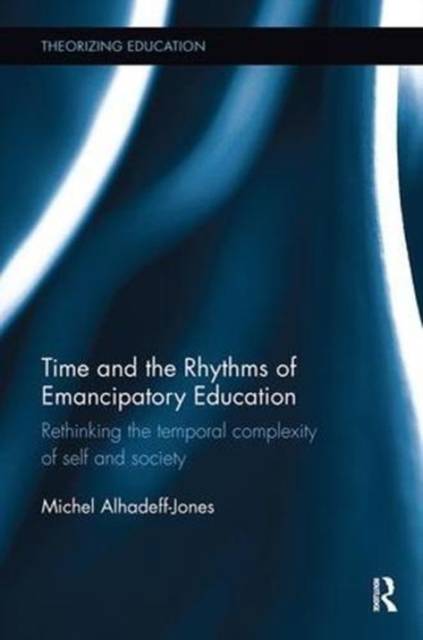
- Retrait gratuit dans votre magasin Club
- 7.000.000 titres dans notre catalogue
- Payer en toute sécurité
- Toujours un magasin près de chez vous
- Retrait gratuit dans votre magasin Club
- 7.000.0000 titres dans notre catalogue
- Payer en toute sécurité
- Toujours un magasin près de chez vous
Time and the Rhythms of Emancipatory Education
Rethinking the temporal complexity of self and society
Michel Alhadeff-JonesDescription
Time and the Rhythms of Emancipatory Education argues that by rethinking the way we relate to time, we can fundamentally rethink the way we conceive education. Beyond the contemporary rhetoric of acceleration, speed, urgency or slowness, this book provides an epistemological, historical and theoretical framework that will serve as a comprehensive resource for critical reflection on the relationship between the experience of time and emancipatory education.
Drawing upon time and rhythm studies, complexity theories and educational research, Alhadeff-Jones reflects upon the temporal and rhythmic dimensions of education in order to (re)theorize and address current societal and educational challenges. The book is divided into three parts. The first begins by discussing the specificities inherent to the study of time in educational sciences. The second contextualizes the evolution of temporal constraints that determine the ways education is institutionalized, organized, and experienced. The third and final part questions the meanings of emancipatory education in a context of temporal alienation.
This is the first book to provide a broad overview of European and North-American theories that inform both the ideas of time and rhythm in educational sciences, from school instruction, curriculum design and arts education, to vocational training, lifelong learning and educational policies. It will be of key interest to academics, researchers and postgraduate students in the fields of philosophy of education, sociology of education, history of education, psychology, curriculum and learning theory, and adult education.
The Open Access version of this book, available at http: //www.taylorfrancis.com, has been made available under a Creative Commons Attribution-Non Commercial-No Derivatives 4.0 license.
Spécifications
Parties prenantes
- Auteur(s) :
- Editeur:
Contenu
- Nombre de pages :
- 226
- Langue:
- Anglais
- Collection :
Caractéristiques
- EAN:
- 9781138602199
- Date de parution :
- 08-05-18
- Format:
- Livre broché
- Format numérique:
- Trade paperback (VS)
- Dimensions :
- 156 mm x 234 mm
- Poids :
- 340 g

Les avis
Nous publions uniquement les avis qui respectent les conditions requises. Consultez nos conditions pour les avis.






